Gen-Z Is Doomed: 41% Support the Murder of United Healthcare CEO Brian Thompson
And 19% claim to be "neutral."
Almost exactly a year ago, I published the fourteenth installment of my “Axis of Genocide” series:
I noted in particular some numbers about younger Americans which I thought others might find as alarming as I did:
Among the figures that I cited then:
30% of those under 30 believe Israel is an “apartheid state.”
19% believe Israel does not have a right to exist.
26% said the way to end the conflict is for “Israel to be ended and given to Hamas and the Palestinians.”
“Younger voters said the Oct. 7 Hamas attacks on Israel were terrorism (73%) and genocidal (66%) in nature, meaning the terror group sought to destroy Israel systematically. Yet 60% said Palestinian grievances can justify Hamas killing 1,200 civilians and kidnapping 250 civilians.”
“67% of those ages 18 to 24 said that Jews are as a class oppressors.”
“Among 18- to 29-year-old respondents, 20% agreed that the Holocaust is a myth, with 8% agreeing strongly. Another 30% neither agreed nor disagreed.”
Pretty grim, don’t you think?
Well, it’s time to add some more stomach-churning data to the picture of Gen Z’s collective moral confusion.
Emerson College released new polling today which included questions about Americans’ views about whether they support the targeted murder of United Healthcare CEO Brian Thompson.
Like to take a guess as to which demographic most favored his killing?
“While 68% of voters overall reject the killer’s actions, younger voters and Democrats are more split — 41% of voters aged 18-29 find the killer’s actions acceptable (24% somewhat acceptable and 17% completely acceptable), while 40% find them unacceptable; 22% of Democrats find them acceptable, while 59% find them unacceptable, this compares to 12% of Republicans and 16% of independents who find the actions acceptable, underscoring shifting societal attitudes among the youngest electorate and within party lines,” Kimball said.
Just go ahead and stare at this chart for a moment and try to process its prophecy for the future of our country:
And that’s just among voters! Imagine how much worse these numbers would be if you factored in the chunk of people who don’t vote!
What the hell is going on here?
How is it that so many young people could justify the terrorism against Israel - and now the emerging terrorism against corporate America? How is it that so many young people could claim the Holocaust is a myth? How is it that so many young people could claim to be “neutral” on whether the Holocaust even happened, and on the acceptability of gunning down a man in broad daylight on the streets of Manhattan over objections to America’s healthcare system?
As counterintuitive as this answer might seem, perhaps we should consider the insights of the alleged CEO murderer himself, Luigi Mangione.
Bhogal, one of Substack’s most gifted essayists, spoke to CNN about his friendly conversation and email correspondence with Mangione.Some notable points that the New York Post highlighted:
“He was very concerned with things like online porn. He believed a lot of men were not going out and meeting women because they were addicted to porn.”
“He was really concerned about video games, he believed that people were not making accomplishments, they were not accomplishing things in the real world because they were getting the dopamine hits from video games.”
Mangione was also terrified that social media were taking people’s “agency” away, and was concerned he too was losing control over his life due to a social media addiction, according to Bhogal, who said he had a two-hour video call with Mangione about those fears just before he disappeared earlier this year.
“He was afraid that technology was going to take people’s agency away. He actually believed that this was already happening.”
“He became interested in Kaczynski’s work for this reason — because Kaczynski also believed this.”
Here's another relevant comment from Gurwinder in the video embedded above:
“He believed culture was downstream of technology. He believed that it was the technological developments that were causing the cultural changes that were resulting in what he would call NPC-behaviors. Amongst the things that he believed was taking people’s agency away from them was shallow entertainment.”
Gurwinder then notes that this article he wrote resonated with Mangione:
Here’s an excerpt from the piece that seems especially relevant:
The vast majority of the online content you consume today won't improve your understanding of the world. In fact, it may just do the opposite; recent research suggests that people browsing social media tend to experience “normative dissociation” in which they become less aware and less able to process information, to such an extent that they often can’t recall what they just read.
But despite being “empty calories,” junk info still tastes delicious. Since your dopamine pathways can't distinguish between useful and useless info, consuming junk info gives you the satisfaction of feeling like you're learning—it offers you the sensation of mental nourishment—even though all you're really doing is shoving virtual popcorn into your skull.
Eventually, the addiction to useless info leads to what I call “intellectual obesity.” Just as gorging on junk food bloats your body, so gorging on junk info bloats your mind, filling it with a cacophony of half-remembered gibberish that sidetracks your attention and confuses your senses. Unable to distinguish between relevant and irrelevant, you become concerned by trivialities and outraged by falsehoods. These concerns and outrages push you to consume even more, and all the time that you're consuming, you're prevented from doing anything else: learning, focusing, even thinking. The result is that your stream of consciousness becomes clogged; you develop atherosclerosis of the mind.
Let’s now consider another survey that could illuminate this concept of a young generation immersed in junk-food information, addicted to the dopamine hits of internet porn and today’s advanced video games, and now deeply morally confused about the acceptability of murder:
The survey points out that 18% of Gen Z identifies as atheist (9%) or agnostic (9%.) This compares to less than 10% of boomers and 4% of the Silent Generation who identify as atheist or agnostic.
A few more charts to chew on:
There’s a maxim that has circulated for decades:
“When men stop believing in God, they don’t believe in nothing; they believe in anything.” - G.K. Chesterton, (1874 - 1936)
It turns out that Chesterton didn’t actually write this. He made similar arguments, but not this exact statement. The reason the aphorism has endured so long should be obvious: it is so clearly true.
But there’s another aphorism attributed to another historical figure from much further back. He also may or may not have said it, but it sums up this phenomenon with even more clarity:
“Nothing is true, everything is permitted.” - Hassan i Sabbah (1050 – 1124)
One can interpret this mysterious statement allegedly uttered by the founder of the Nizari Ismailis and its military order, the Assassins, any number of ways. I think it’s most useful and makes the most sense when understood as, “When nothing is true, then everything is permitted.”
And that mentality has mutated the culture in a transformational way for a huge chunk of Gen Zers—and for a bunch of millennials, as well. They have come unmoored from any form of religious morality, and they now wander in an endless sea of junk ideas and emotional manipulation.
Guess what, folks? It’s only going to get a hell of a lot worse.
Our wild ride into the darkness has just begun …
Update, Dec. 22, 2024:
Gurwinder published his piece today about his interactions with Mangione:


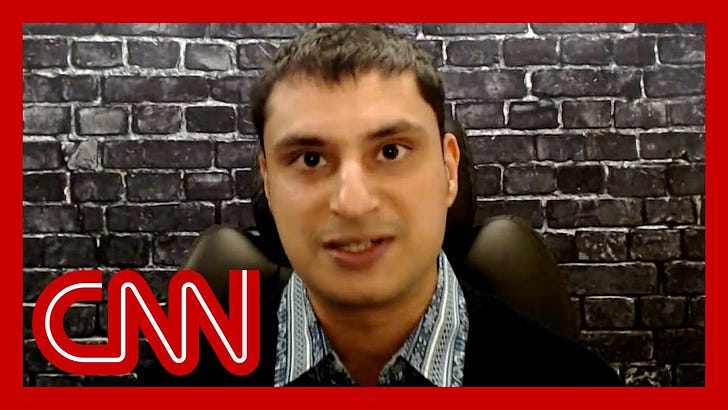


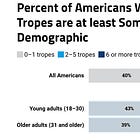
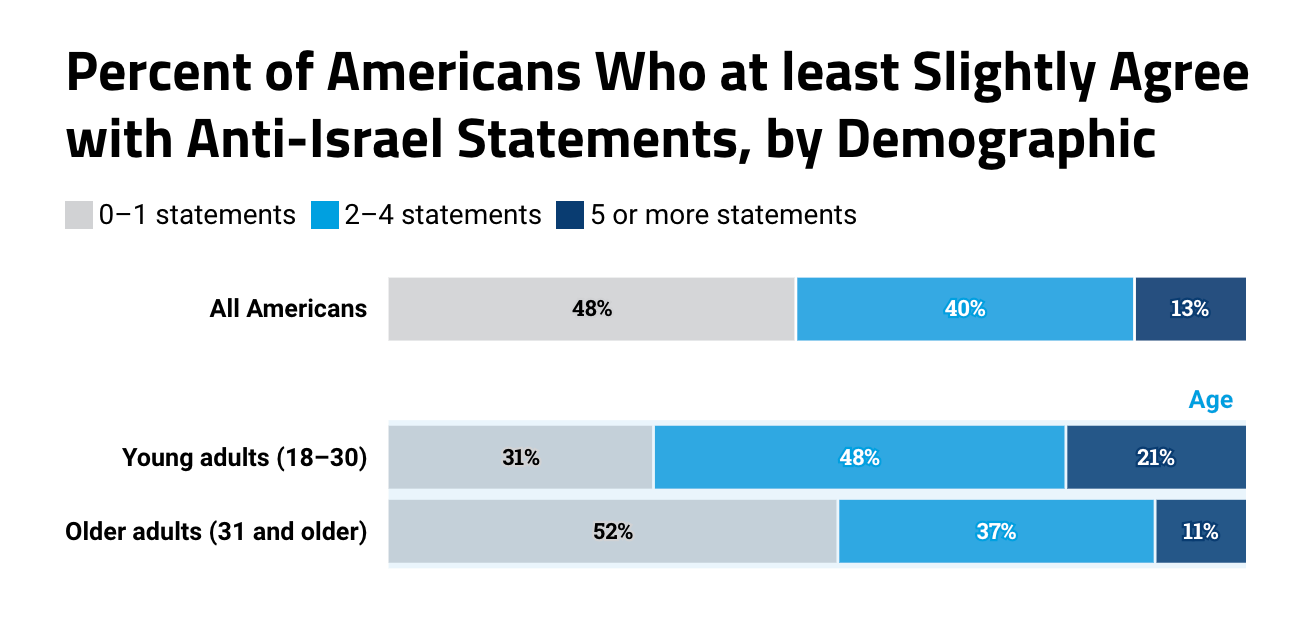
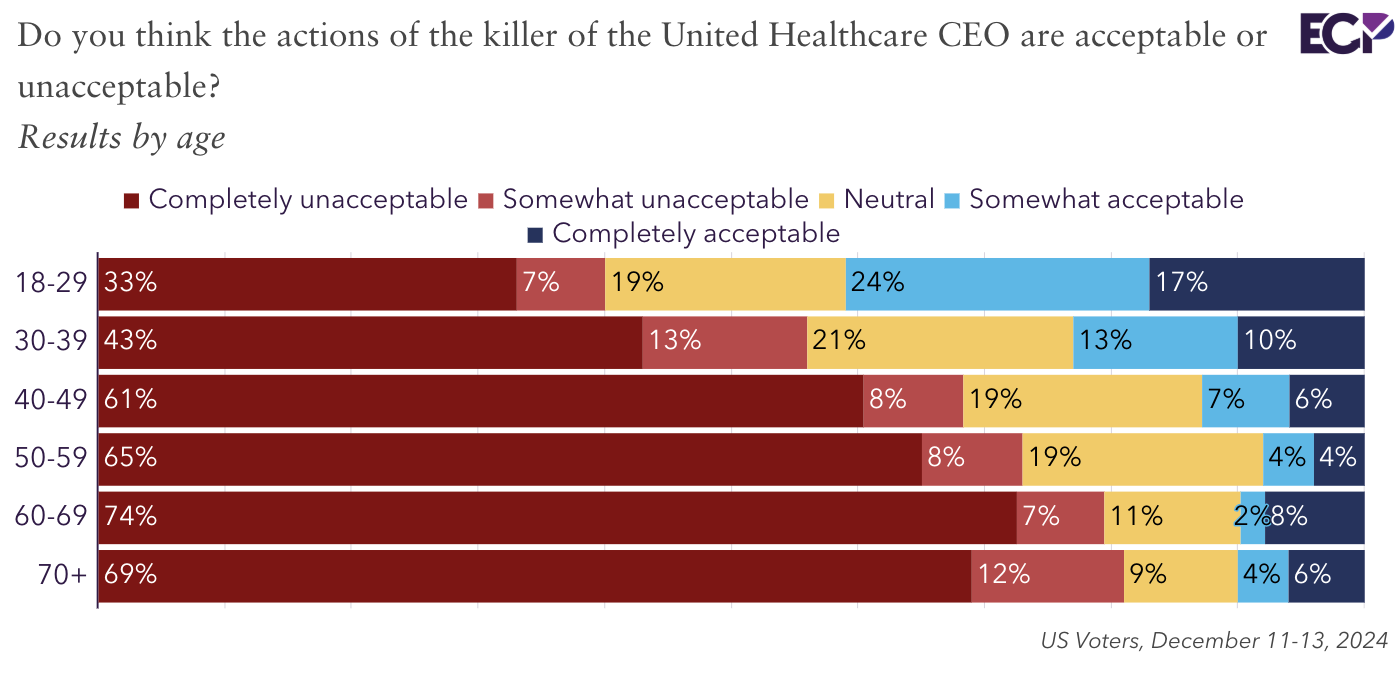

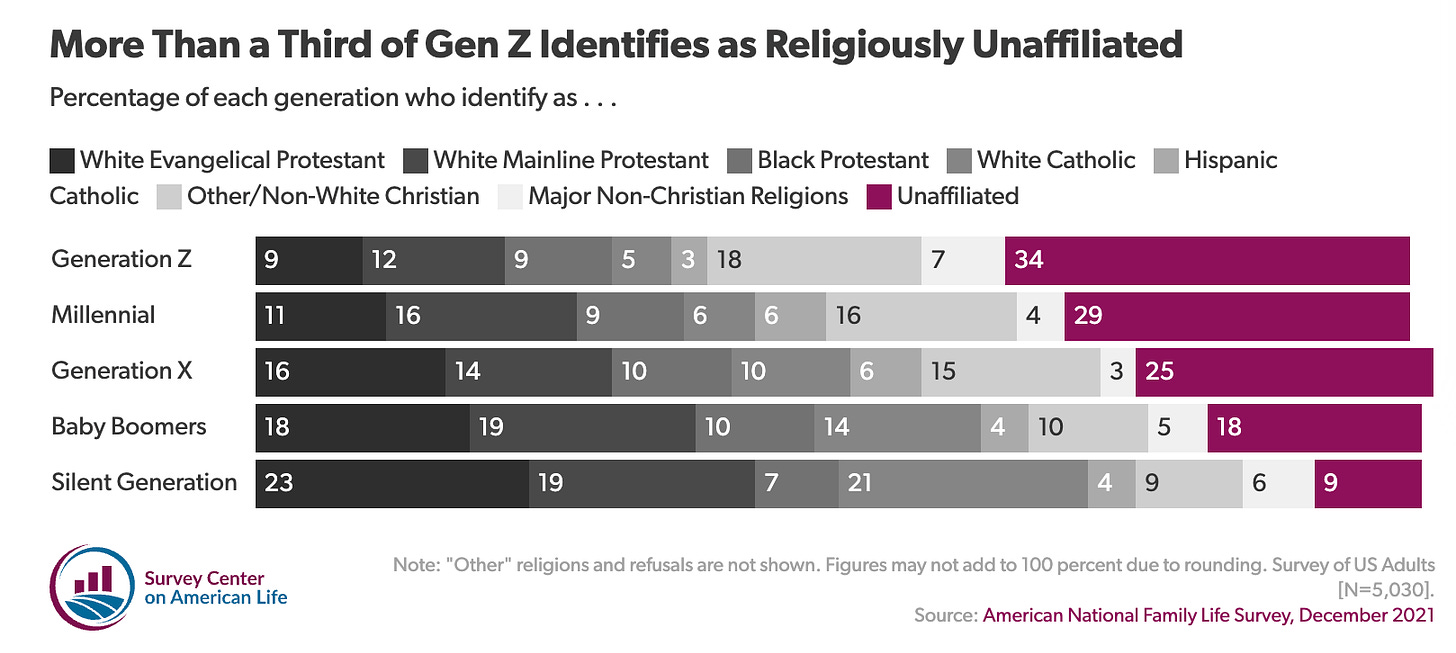
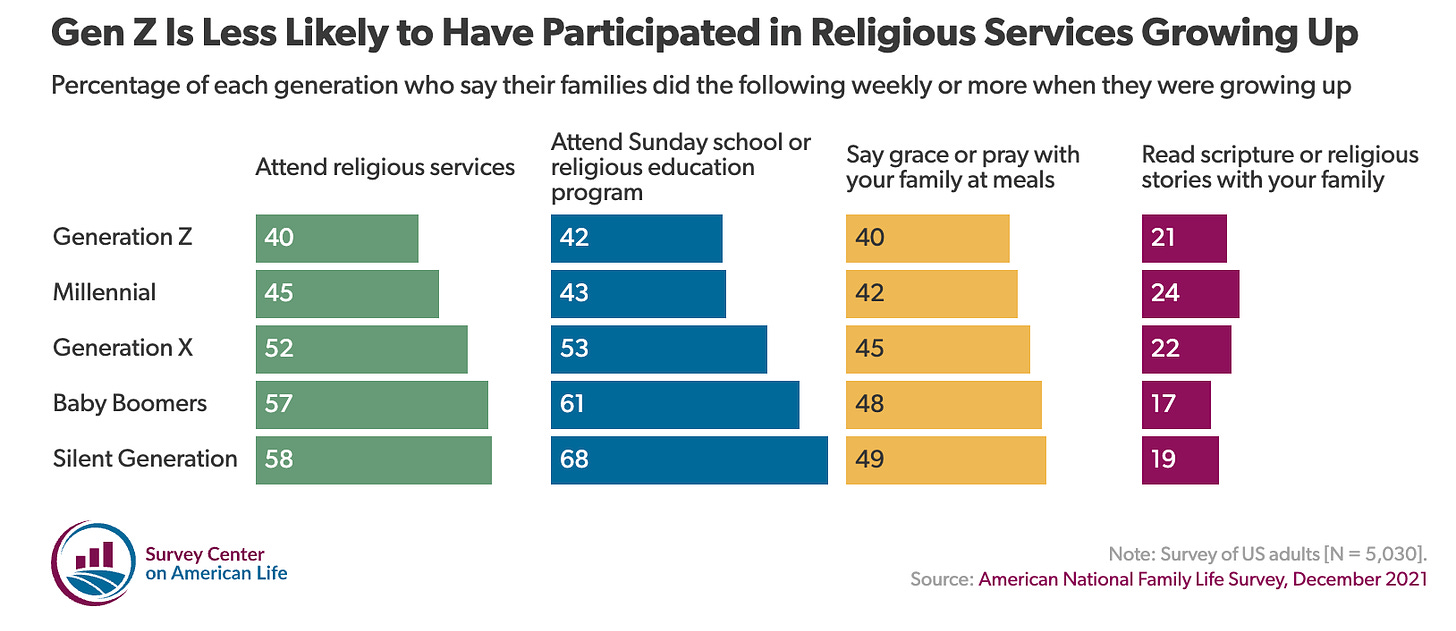
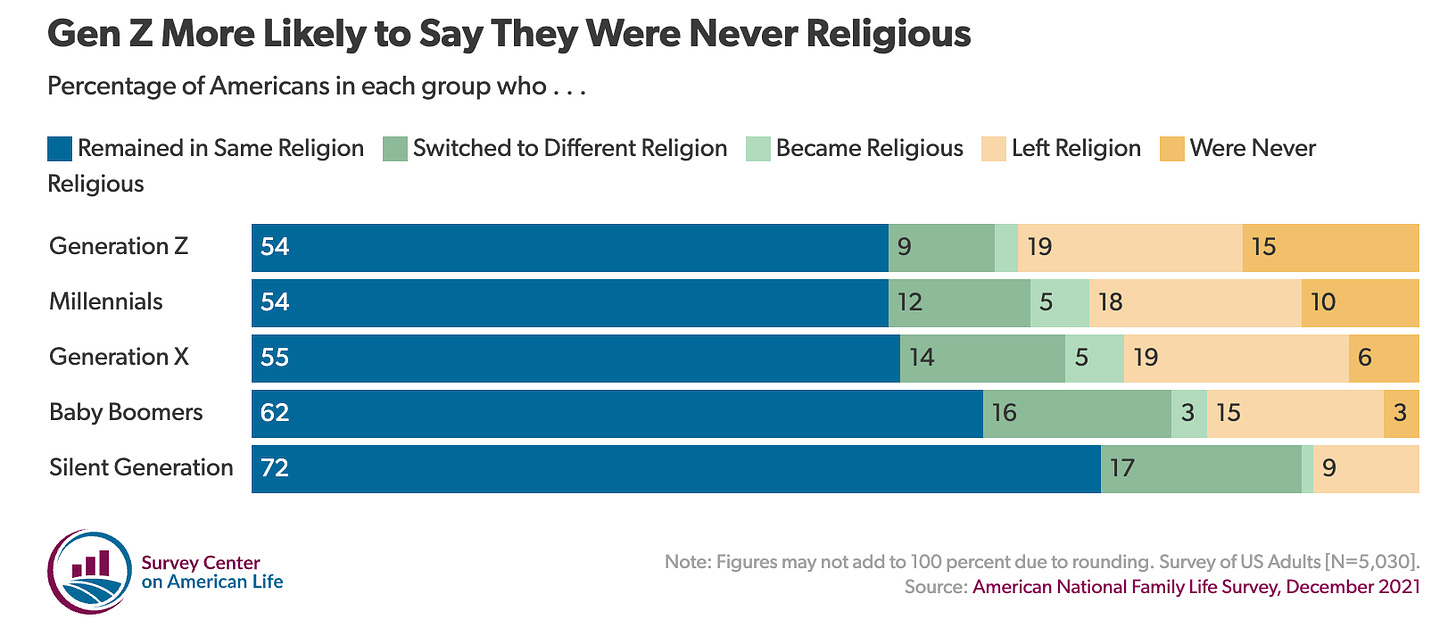
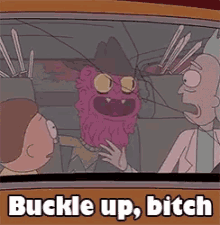
I think this is bad. The only bright side is that young people (men especially) usually grow out of their radicalism when they get older and get some skin in the game.
Obama and Clinton were left wing radicals in their 20s and grew up and became corporate democrats. I know guys who were white nationalists in their 20s who are now centrists in their 30s and 40s.
I for one wanted to bomb the shit out of the Middle East, kill all their leaders, and convert them to Christianity in my early 20s. Basically I was Ann Coulter with a wanger. Now I am just a grumpy conservative.
This is truth I didn't want to know. Oof! Can society recover it's senses?